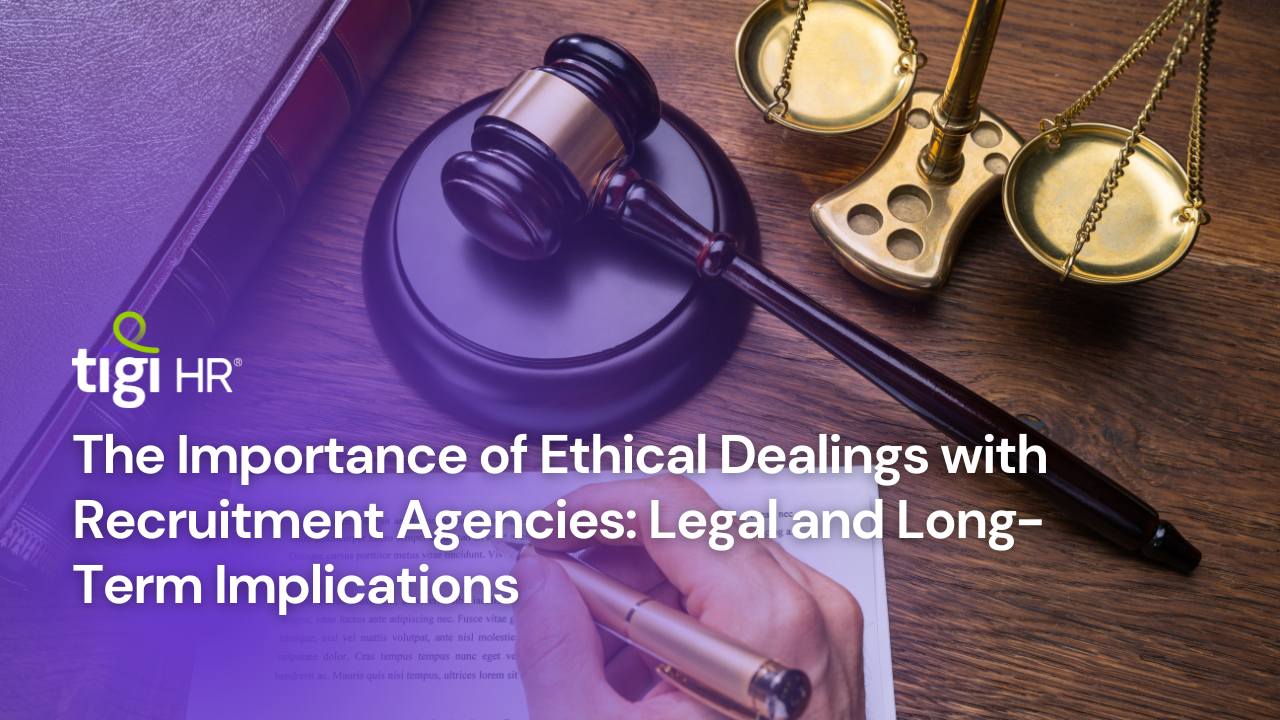In the competitive business world, maintaining ethical relationships with recruitment agencies is not only a best practice but also a legal necessity. Abruptly terminating engagements or withholding payments without valid reasons can lead to severe legal and reputational risks. Businesses often underestimate the strict legal framework that governs their interactions with recruitment agencies, particularly those registered as MSMEs (Micro, Small, and Medium Enterprises). In this article, we will explore the critical importance of ethical dealings with recruitment agencies and the potential consequences of unethical behavior.
Legal Implications of Unethical Behavior Toward Recruitment Agencies
1. Strong Legal Actions under the Companies Act, 2013
If a recruitment agency works with a Private Limited or Limited company, any unethical behavior, including non-payment or contract termination without cause, can lead to significant legal consequences under the Companies Act, 2013. According to Section 447, fraudulent activities—including withholding payments under false pretenses—can result in heavy penalties, including fines and imprisonment. Recruitment agencies, as service providers, can leverage these provisions if companies attempt to evade their financial obligations.
2. Legal Protection for MSMEs and Udhyam-Registered Agencies under the Income Tax Act, 1961
MSMEs enjoy strong legal protections, particularly after the Finance Act 2023 amendment to Section 43B(h) of the Income Tax Act, 1961. This clause specifies that any payments owed to MSME-registered recruitment agencies that are not settled within 45 days will not qualify for tax deductions. This regulation encourages timely payments, and companies withholding payments beyond this period could face additional tax liabilities.
For businesses engaging with Udhyam-registered recruitment agencies, failing to settle payments within the stipulated time frame can result in financial strain due to disqualification from certain tax benefits. Moreover, legal action from MSMEs can lead to a loss of reputation and potentially higher costs in the long term.
3. Risks of Facing Action from the National Company Law Tribunal (NCLT)
The National Company Law Tribunal (NCLT), established under Section 408 of the Companies Act, 2013, plays a crucial role in resolving disputes between operational creditors—such as recruitment agencies—and debtor companies. If a recruitment agency files a petition with the NCLT for unpaid dues, the repercussions for the defaulting company can be substantial.
Recent data shows that 44% of the petitions filed with the NCLT were either settled or withdrawn, indicating that operational creditors received their dues in most cases. If unresolved, these disputes can result in reputational damage, financial losses, and possible legal action against the company, highlighting the importance of ethical practices and timely payments.
Additional Acts Protecting Recruitment Agencies
1. The Micro, Small, and Medium Enterprises Development Act, 2006
The MSME Development Act, 2006 mandates that payments to MSMEs must be cleared within 45 days of delivering goods or services. If this deadline is breached, the debtor company is liable to pay compound interest at three times the RBI bank rate, as outlined in Section 15. This legal protection ensures that MSMEs are not financially strained by delayed payments and acts as a deterrent against unethical practices.
2. The Payment of Wages Act, 1936
Though traditionally applicable to labor and wage payments, the principles of the Payment of Wages Act, 1936 extend to professional service providers like recruitment agencies. Companies that fail to settle recruitment fees promptly could violate the spirit of this act, which ensures timely and complete payments for services rendered. If payments are unjustifiably delayed, recruitment agencies may have grounds to pursue legal action, potentially escalating the issue to the appropriate authorities.
Consequences of Unethical Practices by Recruitment Agencies
While businesses must uphold ethical dealings, recruitment agencies, too, may resort to unethical tactics if payments are unjustly withheld. These unethical practices can be highly detrimental to the debtor company, leading to:
- Negative Publicity on Social and Digital Media: Recruitment agencies may post negative reviews or comments about a debtor company’s management or promoters on online platforms, which can tarnish the company’s public image and credibility. This can damage client relationships and affect business prospects.
- Poaching Existing Talent: Some agencies may target the debtor company’s current employees, offering them new opportunities elsewhere. This could lead to a shortage of skilled personnel and operational disruptions, potentially resulting in significant financial losses.
Upholding Ethical Practices: The Case of TIGI HR
At TIGI HR, we are committed to maintaining ethical and transparent business practices. We believe that timely payments and mutual respect form the foundation of successful business relationships. Our services are delivered with professionalism, and we strive to ensure that our dealings are fair and equitable for all parties involved.
TIGI HR does not endorse or engage in any unethical practices. We believe that both recruitment agencies and companies benefit from adhering to ethical standards, as it ensures long-term success, minimizes risks, and fosters a culture of trust and collaboration.
Conclusion
Companies must be aware of the legal and long-term implications of unethical behavior toward recruitment agencies. Whether it involves delayed payments or abrupt contract terminations, the Indian legal framework—especially for MSME-registered agencies—provides robust protections. Companies that fail to honor their commitments risk severe legal and financial penalties under the Companies Act, the Income Tax Act, and the MSME Development Act.
Ultimately, maintaining ethical business practices benefits both the recruitment agency and the company. Ethical dealings ensure that disputes are resolved amicably, avoiding legal consequences and fostering a positive working relationship for future engagements. amicably and to operate within the boundaries of ethical business conduct, ensuring long-term success and minimizing legal risks.





